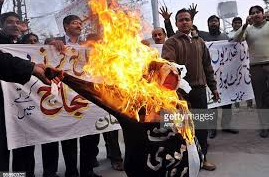
As India increasingly imports cheap Russian oil, its traditional Middle Eastern suppliers lose ground, amidst rising diplomatic and communal challenges.
India is experiencing a significant shift in its oil procurement strategy, with Russia rapidly emerging as a major supplier, displacing longstanding sources like Saudi Arabia and Iraq. Following Russia’s invasion of Ukraine, its oil exports to India have skyrocketed, reaching a record 950,000 barrels per day in June—up from zero in the early months of 2022. This marks a dramatic rise in India’s reliance on Russian crude, which now accounts for 21% of its oil imports, making Russia the second-largest supplier to the country, according to data from Kpler.
Historically, Russia was only the tenth-largest oil exporter to India up until 2021, but the global shift in trade dynamics, partly driven by sanctions on Russia by the US and European Union, has seen India fill the void left by Western buyers. Russia’s ability to offer oil at a steep discount has made it an attractive option for India, especially at a time when global energy prices are volatile and high.
In comparison, traditional suppliers from the Middle East are facing a decline in exports to India. Oil imports from Iraq dropped marginally in June to around 1 million barrels per day, while Saudi Arabia saw its shipments decrease from 697,000 to 686,000 barrels per day. Other Gulf countries, such as Kuwait, have also experienced a drop in their exports to India. This decline coincides with the post-pandemic recovery, which has caused India’s overall demand for crude oil to surge by almost 13% compared to 2021.
Despite these shifts, India remains a critical refining hub, using imported crude to produce refined products like diesel and gasoline, which it then exports. This refining capacity makes Russia’s discounted crude especially attractive, as India capitalises on the cost advantages of Russian oil to increase its clean product exports by nearly 9% this year compared to 2021.
However, this pivot to Russian oil is not without its complications. While the immediate economic benefits are clear, the geopolitical and diplomatic ramifications are significant. The Indian government finds itself walking a fine line, balancing its economic interests with its political relationships. According to Thomas Murphy, strategic intelligence manager at Dragonfly, India’s reliance on Russian oil could lead to increasing criticism and pressure from Western nations, particularly the US and the European Union, for not imposing sanctions on Russia or holding it accountable for its actions in Ukraine.
The growing dependence on Russian oil is also putting India’s long-standing ties with the Middle East under strain. With the region relying heavily on oil exports for its revenue, the loss of key markets like India and China could have long-term consequences. Harsh V Pant, Professor of International Relations at King’s College London, notes that this shift could prompt the Middle Eastern oil producers to reconsider their strategies, especially if India and China continue to purchase discounted Russian oil.
Additionally, rising communal tensions within India have complicated its relations with Islamic nations. In June, derogatory remarks made by members of India’s ruling BJP party about the Prophet Muhammad led to protests across several Muslim-majority countries, including Qatar, Iran, and Kuwait. These tensions have prompted diplomatic backlash and consumer boycotts of Indian products, creating further strain in India’s relations with the Gulf states.
Despite these internal and external challenges, India continues to pursue its oil deal with Russia, with Prime Minister Narendra Modi maintaining a neutral stance on the Ukraine war. Modi’s government has resisted Western pressure to sever ties with Russia, with Foreign Minister Subrahmanyam Jaishankar defending India’s position, asserting that the West is hypocritical in its approach to Russian energy imports.
As the US and EU impose further sanctions on Russian oil, India is rapidly increasing its purchases, making up for the reduced supply to Europe. In fact, India is closing in on the EU’s pre-war import levels, which averaged 2.2 million barrels per day. Indian officials, including Jaishankar, have fiercely rejected accusations of opportunism, insisting that European nations are equally complicit in financing the war by continuing to buy Russian gas.
Looking forward, the question remains whether India’s strategic pivot to Russian oil will persist beyond the war in Ukraine and whether it will face increasing diplomatic isolation from its traditional allies in the Middle East and the West. As the geopolitical landscape shifts, India’s energy strategy will continue to be a key factor in global oil markets and international relations.











